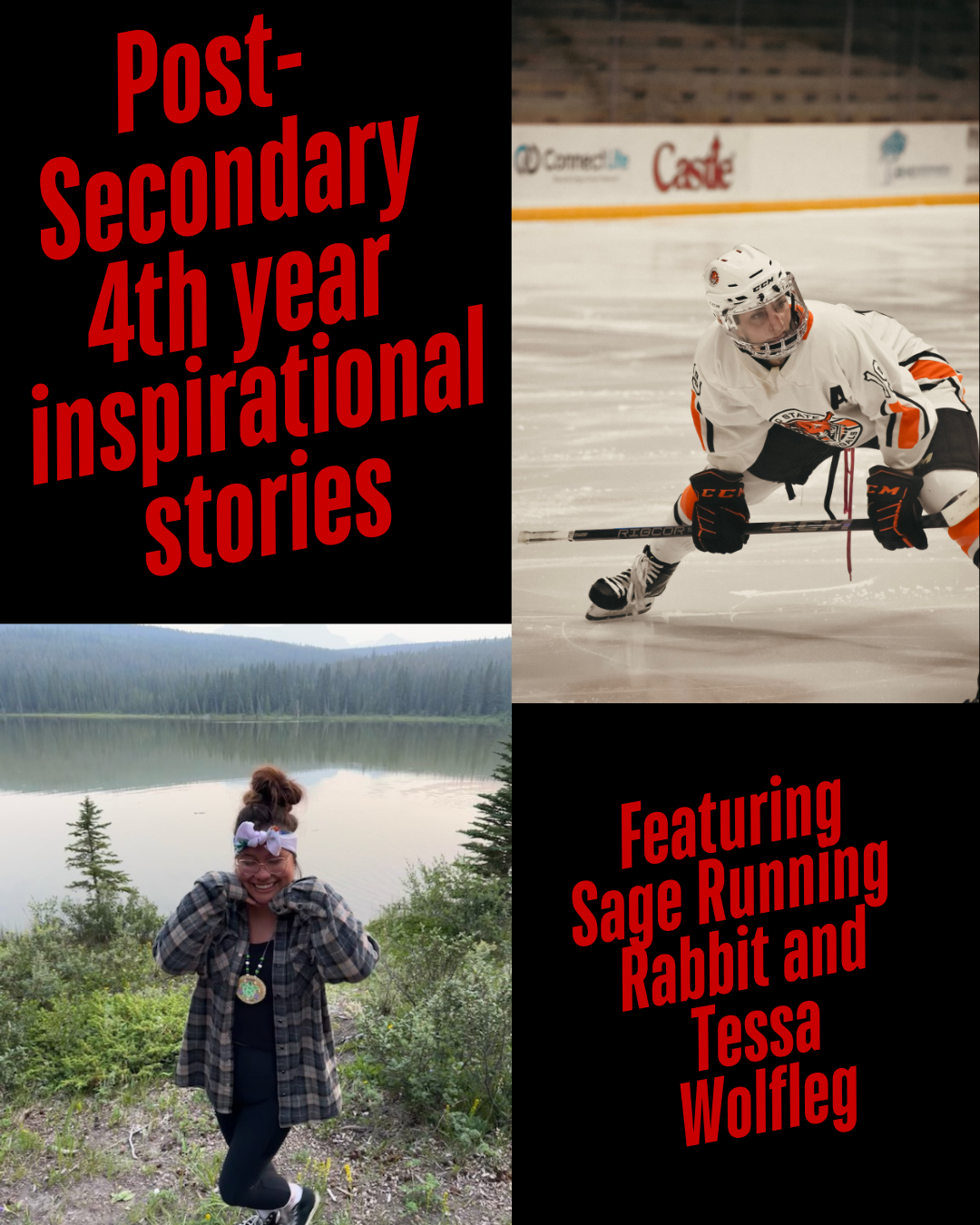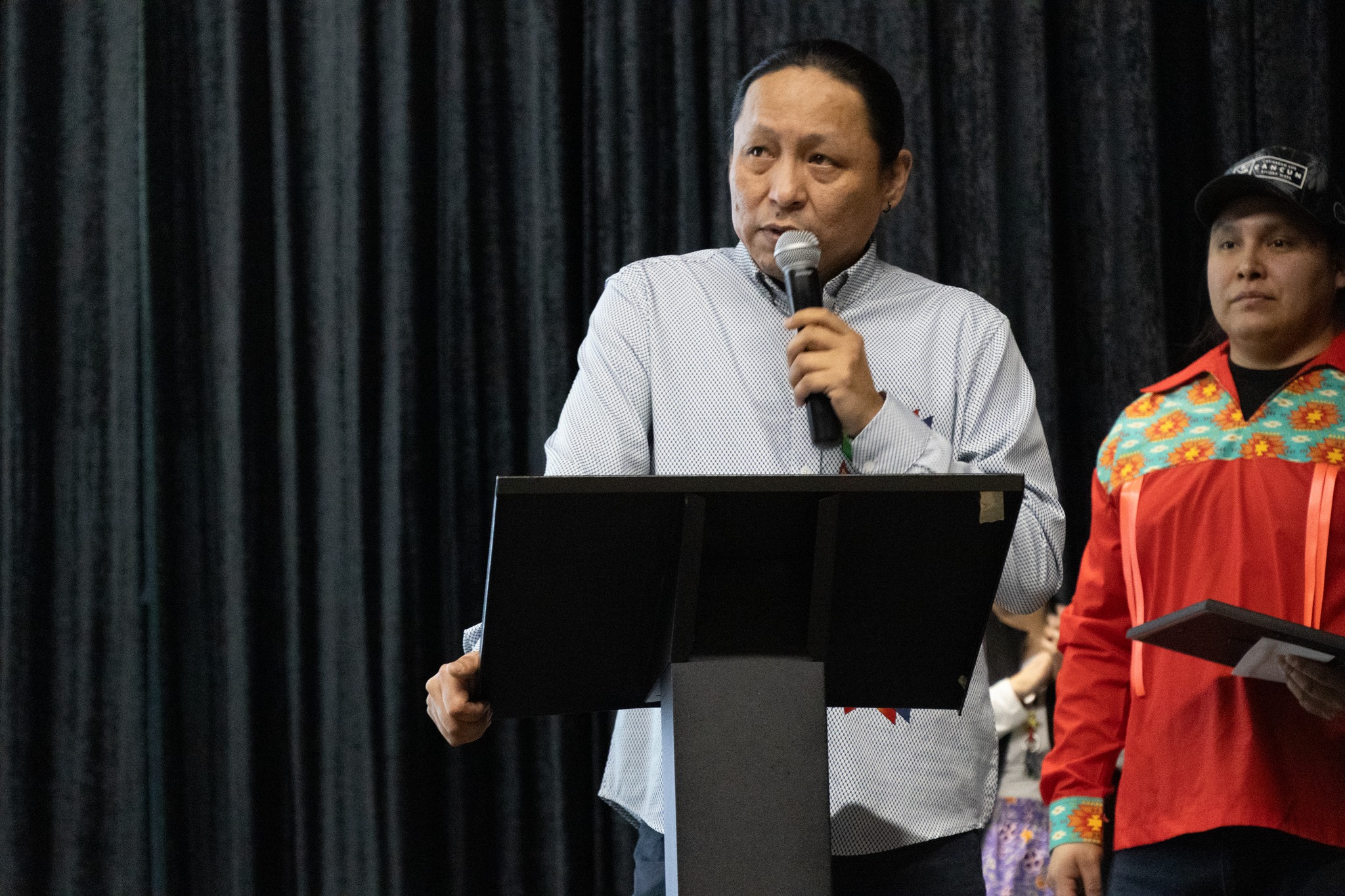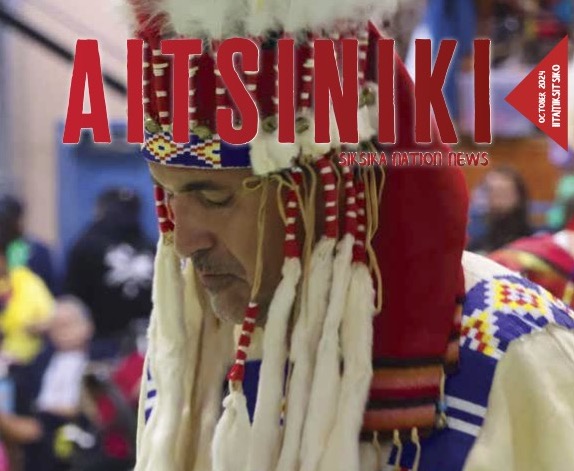By Jasmine Majoros
When one thinks of January, one may think of a good New Year’s resolution. Another might think that because of the Christmas season, the hardships are harder, and the month takes longer to get through. For someone who is a student, it’s a time to reflect and appreciate how far their journeys took them. It’s their stories that one reads about that also remind them to be thankful for their own lives, and for some, are even inspired to go back to school.
Sage Running Rabbit is a fourth-year Health and Wellness student at Buffalo State University in New York. After her upcoming graduation in the spring of 2025, she plans to use her education to become either an athletic trainer or physical therapist. When she is not in class, she is playing at the NCAA Division 3rd level as a dual-sport athlete in women’s field lacrosse and ice hockey.
Her parents are Brendin and Stacey Running Rabbit, and she proudly shares that she is a middle child of 5 siblings. Family is very important to Sage, as it has led her to begin her journey following her brother, who is also attending school in New York State. In the beginning it was her plan to stay in Alberta; however, after a lengthy process applying to schools, she was offered to play both her sports at Buffalo State University in 2021.
That’s not going without saying that Sage had her fair share of challenges adjusting to the new lifestyle of moving away from her family for the first time. Like any first-year college student, the adjustment comes with many new challenges and life lessons. Within her own journey, everything from the era of covid, vaccines, the pros and cons of dorm life, maintaining a balance between her academics and sports commitments, even injuring her knee that put a temporary halt to her sports, and making sure her mental health was in check through it all.
Furthermore, the injury to her knee gave her eligibility to stay back to play hockey for another year after graduation. Not only does she get to enjoy it for another year; this helps her sister make her move to the same university for the spring semester. Having her family around during this process has been a big help with seeing her journey through. Now approaching the end of her fourth year, she is thankful to have learned that post-secondary journeys aren’t just about getting through the academic part. For people who are indigenous and grew up on the reserve, being able to experience college or university really does teach you a lot about yourself and what it’s like to learn to be independent.
“Don’t be stressed about going to college; it’s ok to be scared. It is definitely scary going to a new place and meeting new people, but it’s ok because you’re going to be with people who are going through the exact same thing as you.” Sage Running Rabbit.
Although student journeys share a sense of support through knowing everyone faces the same challenge of maintaining an academic/home life balance, one thing is clear. Each student does have their own journey, and where their passions lead them is the one difference that makes their experience their own. Some go on to fulfill their own lives and needs, while some find themselves coming back to support their community with their newfound knowledge and skills.
Tessa Wolfleg is a student at the University of Calgary finishing up her fourth year in a Bachelor of Arts–International Indigenous Studies and is currently a youth coordinator for an indigenous program in the city. Her parents are Marianna Wolf Leg and Peter Crane; her grandparents are June and the late Reverend Mervin Wolf Leg, Larry and Mae Crane.
Her studies not only gained her a broader insight into indigenous cultures all over the world, but they also focused on the intergenerational traumas that came with their history. To be able to identify patterns within different indigenous communities and issues they face has helped her gain a better understanding of the word resilience. She’s also learned how important it is to have this knowledge when working with indigenous communities and how to incorporate healing strategies, not only for herself as an indigenous woman but in other indigenous communities as well.
Her passion for working with Indigenous youth started there, as she had never really thought about where her educational journey would lead her. Because of this, she is a firm believer in spreading kindness, as you never know what a person is going home to and what life might be throwing at them. Especially when it comes to working with the urban community, because it is so diverse, she hopes her skills and experience will help bridge the gap between the connection to their indigenous roots and the western world.
Wolf Leg goes on without mentioning that she praises failures, referring to the “crabs in the bucket” mentality that some Indigenous youth face. Being able to provide a space where youth are encouraged to take that negativity and turn it into the positivity that drives them forward to achieving their goals. She highly encourages those to take the leap to obtain a post-secondary education as it has become a vital navigation tool for indigenous communities. Wolf Leg has devoted her life up to this point to serving her indigenous community and believes that as long as she continues learning, she will always have something to offer her community.
“At some point you always go back to your community, having that space and giving the tools needed not only to heal yourself but to start that healing with people around you. Because you can’t heal others unless you heal yourself. Tessa Wolf Leg








